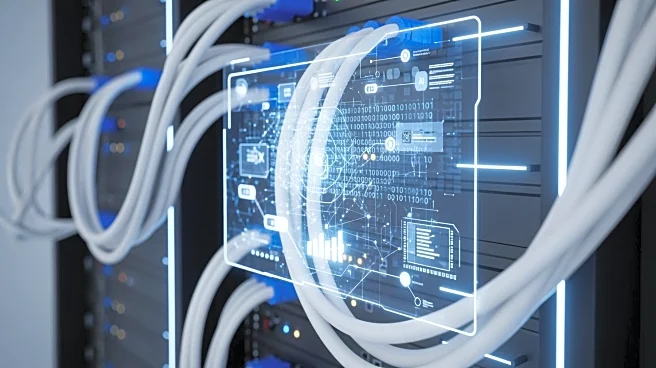What is the story about?
What's Happening?
CNBC's Jim Cramer has expressed his views on the potential impact of a government shutdown on the stock market. He believes that while the shutdown may delay the release of key economic data, it is unlikely to have a significant effect on market performance. Cramer noted that historically, the stock market has managed to perform well during previous shutdowns, with gains observed following two of the last three full shutdowns. He emphasized the importance of distinguishing between a government shutdown and a debt ceiling default, the latter of which could affect interest payments on U.S. Treasurys. Despite concerns about the shutdown, Cramer pointed out that the recent increase in the debt ceiling ensures that the U.S. can continue to pay bondholders. However, he acknowledged that the shutdown could negatively impact furloughed federal workers, with estimates suggesting that 800,000 to 900,000 people could be temporarily out of work.
Why It's Important?
The potential government shutdown carries significant implications for various stakeholders. While the stock market may remain resilient, the shutdown could have adverse effects on federal workers and the broader economy. Analysts from major banks have predicted that each week of the shutdown could reduce GDP growth by 10 to 20 basis points. This could lead to decreased consumer spending, as furloughed workers may face financial constraints. Additionally, the delay in releasing economic data could complicate the Federal Reserve's decision-making process regarding interest rates. The Fed relies on timely data to assess inflation and labor market conditions, and any delay could hinder their ability to make informed policy decisions. Despite these challenges, Cramer remains optimistic that the market will weather the shutdown, but the broader economic impact remains a concern.
What's Next?
If the government shutdown occurs, the immediate focus will be on its duration and the subsequent effects on federal workers and economic data releases. Prolonged shutdowns could exacerbate economic challenges, leading to increased pressure on lawmakers to resolve the impasse. The Federal Reserve may need to adjust its approach to interest rate decisions, potentially delaying cuts if crucial data is unavailable. Stakeholders, including businesses and investors, will closely monitor developments to assess the shutdown's impact on economic stability and market performance. The resolution of the shutdown will depend on negotiations between Democrats and Republicans, who currently disagree on provisions related to Obamacare subsidies in the stopgap funding bill.
Beyond the Headlines
The potential government shutdown highlights broader issues within U.S. political dynamics, particularly the challenges in reaching bipartisan agreements on budgetary matters. The disagreement over healthcare subsidies underscores ongoing debates about healthcare policy and funding priorities. Additionally, the shutdown serves as a reminder of the vulnerability of federal workers to political stalemates, raising ethical concerns about their financial security during such periods. The situation may prompt discussions about the need for more robust mechanisms to prevent government shutdowns and ensure continuity of essential services.















